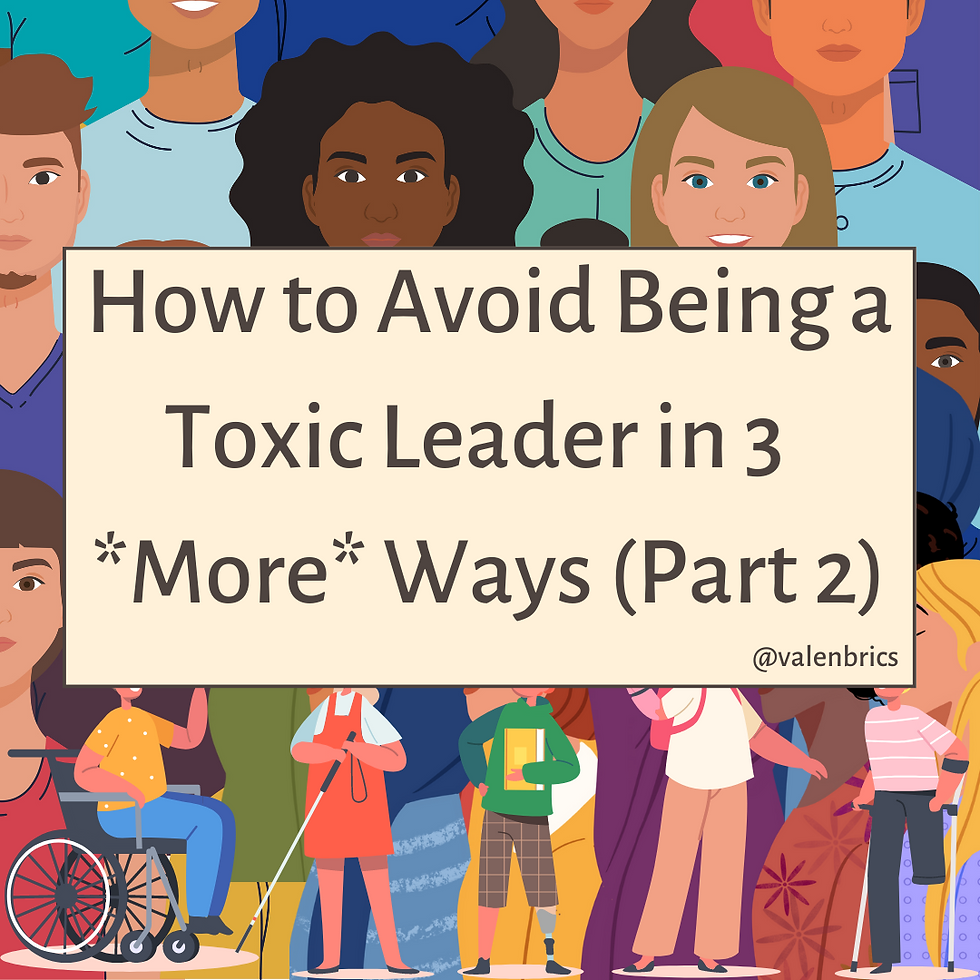How To Help Others Feel Safe Around You?
- Valentina | Leadership Coach

- May 11, 2023
- 3 min read
What if physiologically safe co-regulation is a vital part of your overall well being, contentment, and sense of purpose? What if self-regulation is only a part of the equation and safe connection with others is core to how you're designed to thrive neurobiologically? What if the whole 'you have to love yourself before you can love others or be loved' is fundamentally inaccurate? What if isolating and healing on your own does the exact opposite of what you think it's meant to? What if you hurt in relationships *and* you heal in relationships?
Creating space for safe connection requires you to also learn how to help others feel physiologically safe around you. What if learning how to establish physiologically safe relationships is the precursor to creating psychological safety for your relationships to thrive? Then, you need to take a body-up approach with yourself *and* others. By learning how to self-regulate your nervous system, you create environments where others' nervous systems can feel at ease around you, which is core to physiological *and* psychological safety.
Relationships and conversations are neurobiological interactions between nervous systems that are consistently assessing potential threats to safety. For example, the more you can remain at ease, the more at ease those around you will feel. That can look like making eye contact or leaning into a conversation. It can sound like a warm tone of voice/speaking at a non-threatening volume or like silence of actively listening to what the other is saying. It can feel like being able to take deep breaths around each other and being comfortable having your vital organs face each other.
And.
Socially, making others feel safe around you means making them feel like they can be exactly who they are as they are without fear of judgement. To be clear, this comes back to honouring the intersections of a person's identity as a key way of making them feel seen, heard, and understood. That requires you to deal with your own physiological discomfort when someone points out that, whatever your intent may have been, the impact of your actions caused harm.
For example, dismissing or minimizing a Black person's experience of racism is not going to make them feel physiologically or psychologically safe. The same goes for ignoring a woman's perspective on what's needed to create a better workplace or a disabled person's experience of navigating a society that's built on disabling people with disabilities/chronic pain/chronic illness. Because you don't exist in a vacuum, your nervous system is directly impacted by the ways in which you navigate the world and how the world interacts with you as you navigate it.
Beyond these considerations, here are a 10 questions to ask yourself when better understanding what helps you feel physiologically safe *and* to ask those around you when helping them feel safe:
What makes you feel seen?
What makes you feel heard?
What makes you feel understood?
What question do you wish I'd ask you more often?
What would be most supportive for you right now: for me to listen or for me to help you think through this?
How might we repair after going through momentary relational ruptures?
How do you feel most comfortable connecting?
What do you need right now?
How might I hold space for you in a way that makes you feel safe, seen, heard, and understood?
What would help you remember that you're worthy of love and belonging right now?
Johann Hari proposes that the "opposite of addiction is connection". That's how important community and a sense of belonging are. If connection and support are so vital, then a hype-individualistic approach to life is going to cost you. It will only reinforce the chronic overwhelm cycle that ultimately costs you money, relationships, and health. So much of chronic overwhelm stems from the glorification of doing things alone, perfectly, and smiling. It requires the overriding of your nervous system. That means pushing through and pushing past your body's wisdom and natural cues, as well as your neurobiological need for connection. For more everyday conversations on nervous system self-regulation and co-regulation, follow along @valenbrics on Instagram!




Comments